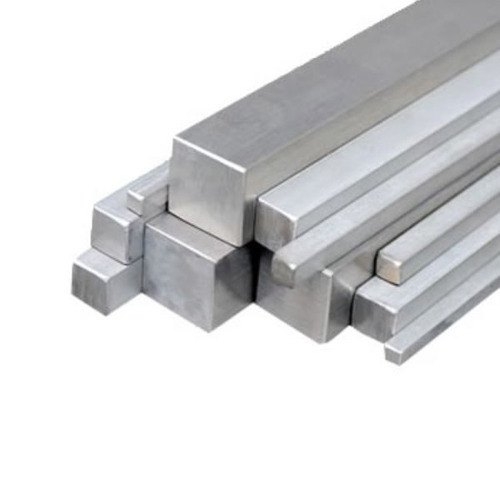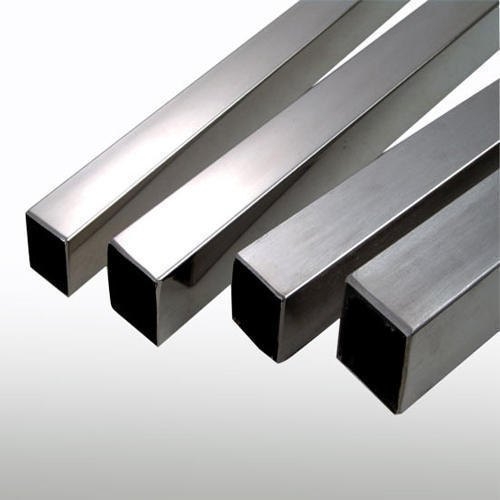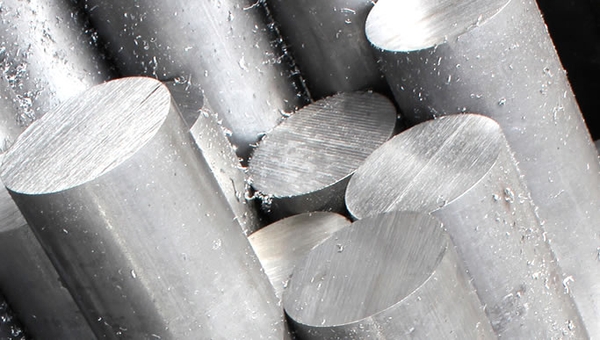CNC molds and use common steels in this process. The steel grades mentioned include carbon steel, tool steel, stainless steel, alloy steel, advanced steel, and aluminum alloy steel. Each steel grade has its own unique mechanical properties and applications, meeting different requirements of molds.
Table of contents
Carbon Steel

Carbon steel with high carbon composition
Carbon steel is a popular steel, which has good mechanical properties and low cost. This is a popular choice for molds that are simple and do not require high strength. The main composition of carbon steel contains from 0.05% to 2.0% carbon and alloys such as silicon, manganese, sulfur, phosphorus, etc. Carbon steel has suitable hardness and ductility, which makes it easy to process and suitable for basic structures.
- Tensile Strength: Usually from about 400 MPa to 1000 MPa.
- Yield Strength: Usually between about 200 MPa and 800 MPa.
- Hardness: Usually between about 120 HB (Brinell Hardness) and 300 HB.
- Heat Resistance: Carbon steel does not have as high heat resistance as alloy steel.
Abrasion Resistant Steel (Tool Steel)
Tool steel is a high-quality steel, capable of high-temperature resistance and precision machining cutting. It is often used for molds that have complex shapes and require high precision. There are three main types of tool steel: Cold Work Tool Steel, Hot Work Tool Steel, and High-Speed Tool Steel. Tool steel has outstanding mechanical properties, high hardness, and good heat resistance.

Tool Steel has many types according to each individual use
- Tensile Strength: Usually between about 1000 MPa and 2500 MPa.
- Yield Strength: Usually between about 800 MPa and 2000 MPa.
- Hardness: Usually between about 150 HB (Brinell Hardness) and 700 HB.
- Heat Resistance: Depending on the type of tool steel, there may be different heat resistance, and high heat resistance to machined cutting temperatures.
Stainless Steel
Stainless steel has good corrosion and oxidation resistance, making it a popular choice for molds related to medical products, food, or humid environments. The main components of stainless steel are chromium from 10.5% to 30% and at least 50% iron, which may contain nickel and other alloys. Stainless steel has good mechanical properties, good corrosion resistance, oxidation, and high strength.

Stainless steel is widely used in manufacturing and manufacturing in high oxidizing environments
- Tensile Strength: Usually between about 500 MPa and 2000 MPa.
- Yield Strength: Usually between about 200 MPa and 1800 MPa.
- Hardness: Usually between about 150 HB (Brinell Hardness) and 300 HB.
- Heat Resistance: Stainless steel has good heat resistance, retains mechanical properties, and resists corrosion at high temperatures.
Alloy Steel
Alloy steel consists of improved chemical components to enhance its mechanical properties. This steel grade is often used for molds that require high strength and wear resistance. The main composition of alloy steels includes chromium, molybdenum, nickel, vanadium, and others.

Steel alloys are synthesized by many components
- Tensile Strength: Usually between about 600 MPa and 2000 MPa.
- Yield Strength: Usually between about 400 MPa and 1800 MPa.
- Hardness: Usually between about 150 HB (Brinell Hardness) and 600 HB.
- Heat Resistance: Depending on the specific alloy composition, alloy steels may have different heat resistance.
Advanced High-Strength Steel
Advanced steel has superior mechanical properties and is often used in high-pressure or high-strength molds. The main composition of this steel grade depends on each specific grade. Advanced steel has higher strength and mechanical properties than ordinary carbon steel.

Reinforced load-bearing structures
- Tensile Strength: Usually between about 1000 MPa (megapascal) and 2000 MPa.
- Yield Strength: Usually between about 800 MPa and 1800 MPa.
- Hardness: Usually between about 200 HB (Brinell Hardness) and 600 HB.
- Heat Resistance: Superior advanced steel has better heat resistance than conventional carbon steel, but the specific value may vary depending on the specific steel grade and heat treatment.
Aluminum Alloy Steel
Aluminum alloy steel combines the features of steel and aluminum, creating lightweight and hard materials. This is a suitable choice for molds that require lightweight and sophisticated detailing. The main composition of aluminum alloy steel contains aluminum alloy and steel. It has good mechanical properties, is light and hard, and has good bearing capacity.

Aluminum alloy is favored in CNC machining
When manufacturing CNC molds, the selection of suitable steel materials will play an important role in ensuring the quality and performance of mold products. Mold design facilities can take advantage of the special properties of each type of steel to produce molds that fully meet technical and quality requirements.
- Tensile Strength: Usually between about 200 MPa (megapascal) and 600 MPa.
- Yield Strength: Usually between about 100 MPa and 500 MPa.
- Hardness: Usually between about 30 HB (Brinell Hardness) and 150 HB.
- Heat Resistance: Aluminum alloy steels generally have good heat resistance, but the specific value may vary depending on the specific steel type and heat treatment.
With the above specifications, Vinahardware (VNH) hopes to give you 1 overarching view of mold manufacturing and processing materials. From there, get the right choice for yourself. Note that the above values are for reference only and may vary depending on the specific chemical composition of each steel grade and its processing. To know the exact specifications of each type of steel, you can refer to and receive advice from Vinahardware's technical team. With innovation, investment, and development in technology, Vinahardware has been able to bring more accessible and suitable mold processing costs.

 Vietnamese
Vietnamese
 English
English
